#albert tatlock
Text

perfect image
#obsessed with this picture#no idea what episode it's from or what's happening but just#the glass of wine + cigarette combination in the left hand#idk what is in the right hand? one of those things to pour gravy? milk?? idek#I'm guessing she's mid song. the way albert tatlock and minnie caldwell are just sitting there watching#the energy in the room is phenomenal i want to be there#anyway#coronation street#minnie caldwell#albert tatlock#hilda ogden
2 notes
·
View notes
Text
i know some people are upset about oppenheimer not showing the effects that the atomic bomb had on the japenese people, or the trinity test on the local people of white sands (where they did the testing), but i think that's the point. these people were never the main concern for the sceintists working on this project, their focus was simply on whether or not they'll win the war. as far as i know, the people of white sands (population of around 5000 then) weren't even warned about the detonation of the bomb (trinity test), the radiation and all of the consequences that comes with it.
that's why i think it was left out in the movie, because it wasn't oppenheimer or anyone else's main concern at all and that's supposed to be terrifying.
note: the cast also mentioned that the script was written in first-person pov & purely based on oppenheimer's perspective.
- let me know if something i said might have been incorrect!
#oppenheimer#robert oppenheimer#oppenheimer movie#cillian murphy#florence pugh#albert einstein#jean tatlock#kitty oppenheimer#emily blunt#lewis strauss#robert downey jr#rdj#christopher nolan#cinematography#film#oscars
525 notes
·
View notes
Text

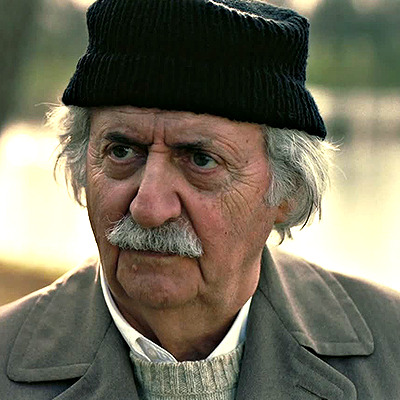


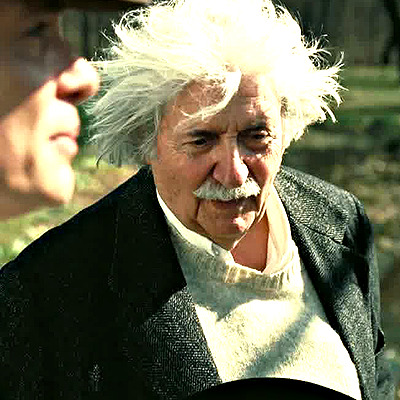
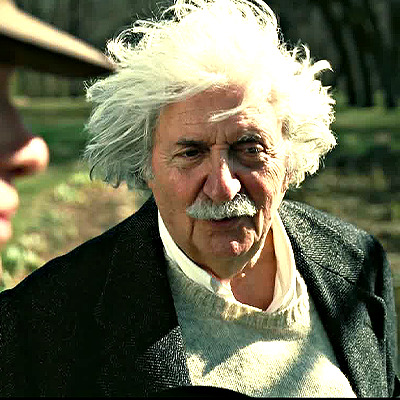

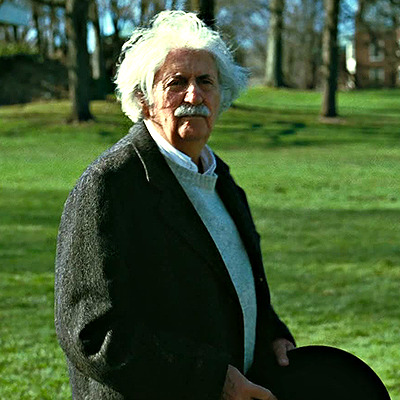
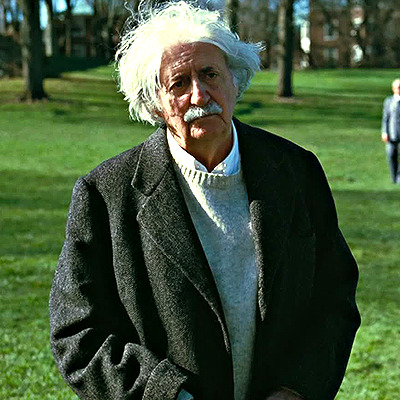
Albert Einstein - Oppenheimer, 2023
#icons#albert einstein#albert einstein icons#oppenheimer#oppenheimer icons#oppenheimer 2023#barbenheimer#random icons#no psd icons#film icons#tom conti#tom conti icons#jean tatlock#jean tatlock icons#cillian murphy#cillian murphy icons#cillian icons#actor icons#robert oppenheimer icons#j. robert oppenheimer icons#kitty oppenheimer icons#katherine oppenheimer#katherine oppenheimer icons#kitty oppenheimer#twitter icons#twitter layouts#male icons#barbenheimer icons#movie icons#cinemaedit
36 notes
·
View notes
Text
'It struck me watching Christopher Nolan’s masterful three-hour epic telling of the story of J. Robert Oppenheimer, long labeled the Father of the Atomic Bomb, that this is a period piece with an exclamation point for audiences today.
In the 1940s, Oppenheimer and a team of brilliant scientists traveled into the unknown to create the ultimate weapon of mass destruction, the A-bomb, but with the noble reason that its use could be an end to war, its explosive and wide-ranging ability to tear apart vast areas of the planet would be used ultimately as a deterrent, not an endgame. It would be used against Nazi Germany in World War II, an answer to Hitler’s own demented vision of world dominance and annihilation. But anytime you are doing something never done in the whole history of humanity, there is risk, moral questions, unintended consequences and the possibility of building a monster even Dr. Frankenstein could not have imagined — or stopped.
So I was thinking about the current discussions of AI — its potential for good and life-changing breakthroughs but also, as scientists and its Silicon Valley creators have been warning recently, a new gadget (as the A-bomb initially was nicknamed) whose use could careen out of control and destroy us all. This is no mere science fiction, and neither was getting “the bomb,” which did the thing for which it was built and had the effect of ending World War II (but after Germany surrendered) when it was dropped twice on Japan in August 1945, first Hiroshima and then Nagasaki. The result for humanity there was devastating, but it turned out it was just the beginning.
Nolan is simply an exceptional filmmaker whose cinematic sensibility is steeped in the classics but merged with modern sensibilities and tools to make one-of-a-kind visual experiences with real ideas about the world around us. With Oppenheimer, his interest is in the complex mind of J. Robert Oppenheimer (played by Cillian Murphy in his sixth collaboration with Nolan but first as the lead), a complicated but brilliant physicist tasked with leading the Manhattan Project, the secret effort to create the nuclear bomb, a weapon so powerful it could be used to end war forever — in the right hands. Oppenheimer, a man with leftist politics even accused of being a communist, knew he could bring all the elements together but also — as we see his story played out in an unusual first-person approach in Nolan’s stunning screenplay based on the Pulitzer Prize-winning book, American Prometheus: The Triumph and Tragedy of J. Robert Oppenheimer by Kai Bird and Martin J. Sherwin — a moral conundrum gathering in his head as he begins to envision the dangers beyond a short-term use of a weapon that could — and did — spark an arms race and a new world order that changed us forever.
Nolan’s movie is set right at the start but serves as a fascinating glimpse into those who had it in them to pull off this remarkable feat but also had to live with its consequences, something we all have to live with today in a shaky time where the nuclear threat has sadly not gone away but only brought the doomsday clock closer to midnight than ever. How many times lately have we heard Putin try to make its use in Ukraine a possibility, even pointing out the Americans have been the only ones to ever use it — so far?
It is not a spoiler to reveal that Nolan ultimately chose not to show the horrific results of what happened the first time the Americans dropped that A-bomb over Japan. Instead we see it played out through Oppenheimer’s haunted eyes, a far more effective and chilling approach, achieved with some superior special effects married to music (Ludwig Goransson did the pulsating score) and superb, ear-rattling sound design. This ultimately is not an action spectacle or bomb-dropping war movie but a very human one in which its title character faces a moral dilemma shared by few in history, if anyone.
Oppenheimer’s story is told in non-linear style, shuffling back and forth to different periods in time, his own tale shot in color and told in first person, the later trials explaining how it all happened from various points of view shot in striking 65MM black-and-white film — particularly Robert Downey Jr.’s cagey Lewis Strauss, who was the founding commissioner of the U.S. Atomic Energy Commission and later a Cabinet appointee as Secretary of Commerce in the Eisenhower administration.
Although they are two key players here, Nolan has made a very dense film with a very large and starry cast — three recent Best Actor Oscar winners have small supporting roles, if that gives you an idea — the kind we used to see in ambitious Hollywood films by great directors but not so much lately, at least on this intellectual scale. Matt Damon is excellent as Leslie Groves, the Army officer who was director of the Manhattan Project and brought Oppenheimer into it; Emily Blunt is riveting as Kitty Oppenheimer, his wife (on her fourth marriage) but the one who clearly was his match; Florence Pugh plays Jean Tatlock, with whom he had a sizzling but tragic affair; Josh Hartnett is full of his own energy as the lively friend and nuclear scientist Ernest Lawrence; Kenneth Branagh is Niels Bohr, a Nobel Prize winner in physics who serves as sort of a mentor; Benny Safdie is great as Edward Teller, the theoretical physicist who pushed further into development the terrifying H-bomb, something Oppenheimer vehemently opposed; and on and on.
Those three recent Best Actor winners have memorable, if brief, moments as well. Casey Affleck is Boris Pash, the Presidio’s Chief Army Counter Intelligence Officer; Rami Malek is an associate physicist who makes his mark in a Senate hearing later in the film; and an unrecognizable Gary Oldman is highly amusing as President Harry Truman in one of the film’s most memorable scenes as he invites Oppenheimer into the Oval Office to congratulate him on the A-bomb, only to hear Oppenheimer’s new misgivings about its use going forward and that the Russians are on the path to getting it. He shuts him down, dismissing that idea and reminding him, in pure Trumpian-style bravado, that it will be he who will be remembered as the one who actually used it and won the war.
Shout-outs as well to David Dastmalchian as William Borden, a zealous nuclear advocate; Jason Clarke as Roger Robb, who was Special Counsel at the 1954 hearing to deny Oppenheimer’s security clearance; Tony Goldwyn as Atomic Energy Chairman Gordon Gray; and Jefferson Hall as Haakon Chevalier, a key early friend of Oppenheimer’s. Veteran actor Tom Conti also is simply terrific in his few scenes as Albert Einstein, a famous confidant of Oppenheimer’s. Casting director John Papsidera should get plaudits for helping to put together this far ranging cast of fine actors, way too many to mention here.
At three hours, there is a lot of story to tell here, and Nolan condenses it nicely and really moves this along with the pace of the best thrillers. The scene where the big first Trinity test of the bomb occurs in the New Mexico desert is pulse-pounding suspense (no one knew when the button was pushed what its effect on the Earth’s atmosphere would be), aided significantly by the razor-sharp editing of Jennifer Lame and ace cinematography by Hoyte van Hoytema, working for the fourth time with Nolan. But this is a movie where you never look at your watch no matter what the running time. Murphy gets the deserved role of a lifetime and really captures all the contradictions of this brilliant, tortured, complicated man. Downey gets his best role in years, a real standout as well.
From a man who has taken us into places movies rarely go with such films as Interstellar, Inception, Tenet, Memento,the Dark Knight Trilogy, and a very different but equally effective look at World War II in Dunkirk, I think it would be fair to say Oppenheimer could be Christopher Nolan’s most impressive achievement to date. I have heard it described by one person as a lot of scenes with men sitting around talking. Indeed, in another iteration Nolan could have turned this into a play, but this is a movie, and if there is a lot of “talking,” well he has invested in it such a signature cinematic and breathtaking sense of visual imagery that you just may be on the edge of your seat the entire time.
Hopefully people will see it in a theater, a place of worship for people like Nolan and me. It was made on the biggest film stock possible and meant for the largest screens, but it isn’t mere summertime escapist entertainment like most of the movies in large formats these days. At the very least, it is a necessary reminder that we are still sitting on the powder keg Oppenheimer and his team created, and we still need to heed his warnings, maybe now more than ever.
Oppenheimer is the most important motion picture of 2023, and maybe far beyond.'
#Oppenheimer#Christopher Nolan#Cillian Murphy#Florence Pugh#Emily Blunt#Robert Downey Jr.#Matt Damon#American Prometheus: The Triumph and Tragedy of J. Robert Oppenheimer#Kai Bird#Martin J. Sherwin#Josh Hartnett#Tom Conti#Albert Einstein#Kitty#Jean Tatlock#Lewis Strauss#Leslie Groves#Ludwig Goransson#Ernest Lawrence#Niels Bohr#Kenneth Branagh#Casey Affleck#Rami Malek#David Dastmalchian#Gary Oldman#Dunkirk#Tenet#Interstellar#Inception#Memento
8 notes
·
View notes
Text
GONE FISSION
Opening in theaters this weekend:
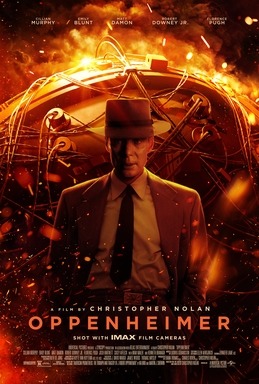
Oppenheimer--This biopic splits time the way its hero splits the atom. Narrative is fissionable to writer-director Christopher Nolan; he skips back and forth between episodes of Oppenheimer (Cillian Murphy) as a bumbling student, then as a philandering rising star in the new field of quantum physics, then as the determined yet haunted lord of Los Alamos, then as a post-bomb martyr to '50s era red-baiting. It glides along smoothly through its fractured scheme, beautifully shot by Hoyt van Hoytema in black and white and varyingly muted shades of color depending on period and point of view, and pushed along by a solemn Philip Glass-esque score by Ludwig Göransson.
Often crowned by a horizontal wide-brimmed preacher-style hat that makes him look like Brad Dourif in Wise Blood, Murphy uncannily captures the bursting, wide-eyed, near-ecstatic face that we see in photos of Oppenheimer. But he manages to give the performance a human dimension, with everyday foibles and touches of humor. He's not a pageant figure.
Murphy carries a star presence. But he's very ably supported by a huge, colorful gallery of star character players: Robert Downey Jr. as AEC Chairmen Lewis Strauss and Josh Hartnett as Ernest Lawrence and Benny Safdie as Edward Teller and Tom Conti as Albert Einstein and David Krumholtz as Isidore Rabi, Oppenheimer's menschy colleague who makes sure he eats and nudges his conscience, and Matthew Modine and Casey Affleck and Kenneth Branagh and Rami Malek and Alden Ehrenreich, to name only a few.
They're all entertaining, but two in particular jolt the movie to life: Florence Pugh as Oppenheimer's joyless lover Jean Tatlock and Matt Damon as the practical-minded, professionally unimpressed Leslie Groves, representing us laypeople in his deadpan, flummoxed scenes with Murphy. For a while it seems like Emily Blunt is underserved as Kitty Oppenheimer, but near the end she gets a juicy, angry scene opposite AEC lawyer Roger Robb (Jason Clarke), who has underestimated her.
Other than maybe a few too many scenes of the young "Oppie" having visions that look like the psychedelic mindtrip at the end of 2001, there was no point where I found Oppenheimer less than absorbing. Few would suggest that this ambitious, superbly acted, superbly crafted film isn't a major, compelling work, a vast expansion on Roland Joffé's watchable but modest Fat Man and Little Boy from 1989. If Nolan's film isn't quite completely satisfying, there could be two reasons.
One is that trying to arrive at a moral conclusion about this movie's hero seems impossible. Put (too) simply: on the one hand, Oppenheimer won World War II for the good guys and checked fascism (not checkmated it, alas) for more than half a century. On the other hand, his invention has the potential to ruin the world for everybody. Both can be true, and the ambiguity is unresolvable.
Another problem with the film, however, is a matter of simple showmanship. Back in 1994, James Cameron brought his silly action picture True Lies to a point where Arnold Schwarzenegger and Jamie Lee Curtis kiss while, far in the distance, we see a mushroom cloud erupt on the horizon. Triumphant, but then Cameron pushed his luck, piling on one last struggle with the villain in a Harrier jet. I remember thinking (and writing) at the time that when your hero and heroine kiss in front of a mushroom cloud, the movie is over.
Oppenheimer, obviously a very different movie, is uneasily structured in the same way. The scenes leading up to the Trinity Test at White Sands in 1945 are riveting, pulse pounding. The explosion and the immediate aftermath, ending the war in Japan, is a stunning dramatic climax.
But then the movie keeps going, for another hour or so, detailing the war of spite and will between Strauss and Oppenheimer, and the revocation of Oppenheimer's security clearance. It's interesting, provocative material in itself, but it seems a little petty and trivial after the "I am become death; destroyer of worlds" stuff. Given Nolan's supposed consummate skill at scrambling sequence, couldn't he have somehow structured the movie to end with a bang and not a whimper?
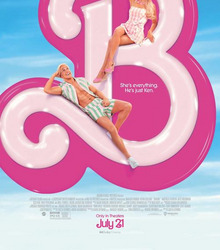
Barbie--Something is rotten in the state of Barbieland. As this, her first live-action feature begins, our titular heroine finds herself haunted, right in the middle of raging dance parties at her Dreamhouse, by thoughts of death. Still more alarming, when she steps out of her pumps, her feet go flat to the ground.
To be clear, the Barbie in question, played by Margot Robbie, is "Stereotypical Barbie," the blond, inhumanly thin and leggy iconic version of the Mattel doll. She shares the relentlessly cheery pink-plastic realm of Barbieland with countless other Barbies of every race and body shape and profession, all happy and accomplished and untroubled and mutually supportive. They're dimly aware of us in the "Real World"; they believe that their own harmony has created an example that has led to female empowerment and civil rights over here.
The Barbies also share Barbieland with Ken (Ryan Gosling) and countless variant Kens, as well as Ken's featureless friend Allan (a perfectly cast Michael Cera). But the guys exist entirely as accessories to the relatively uninterested Barbies. Ken's unrequited fascination with Barbie makes him subject, unlike the Barbies, to dissatisfaction.
Barbie goes for advice to "Weird Barbie" (Kate McKinnon), whose hair is frizzy and patchy and who's stuck in a permanent split. She's told that her troubles come from the dark feelings of somebody who's playing with her in our reality, so she sets out on a quest to the Real World, emerging in Venice Beach. Barbie connects with a mom and teenage daughter (America Ferrera and Ariana Greenblatt) whose relationship is strained; she's also pursued by the all-male board of Mattel, led by Will Ferrell. Ken, meanwhile, learns about our patriarchy, likes what he hears, and heads back to Barbieland alone to institute it, with himself at the top.
Mattel was founded in 1945, the same year as the Trinity Test, and there are probably feminist social critics who would argue that Barbie, invented in 1959 by Mattel co-founder Ruth Handler (well played by Rhea Perlman in the film), has wreaked only a little less havoc on the modern psyche than Oppenheimer's gadget. Even though I'm in exactly the right generational wheelhouse (I was born in 1962), my own childhood experience with Barbie was very limited, and thus so were my nostalgic associations with her.
Even so, this nutty fantasy, directed by Greta Gerwig from a brilliant script she wrote with Noah Baumbach, made me laugh from its inspired first scene to its Wings of Desire finish. Narrated in the droll, arch tones of Helen Mirren, it manages to come across as both an ingenious pop-culture lampoon/celebration and an unpretentious but surprisingly heartfelt deep dive into the implications of the Barbie archetype. I wasn't a big fan of Gerwig's 2019 version of Little Women, but here she builds her world with the freedom of, well, a kid playing with dolls, but also with the confidence and adult perspective of an artist.
Not everything in the movie works; in the second half the narrative gets a little lost at times in some very strange musical numbers/battle scenes, and the whole thing comes close to going on a bit too long. And it's hard to say just who this movie is for. It hardly seems intended for little girls; however smart, they're too young for the commentary about female identity to mean much to them yet. It seems more like it's meant for adult women with both a fondness for and an ambivalence toward Barbie.
No doubt there are those who would also complain that, however witty and self-effacing, the movie amounts to a feature-length commercial for the brand. But in the age of Marvel and other such franchises, it seems a little late to object to this.
The revelation in the film is Margot Robbie. It seems ridiculous that she's able, in the role of freaking Barbie, to give a performance of such subtlety and nuance and shading and quiet, unforced wistfulness, but she does. And she gets to deliver the best last line of the year.
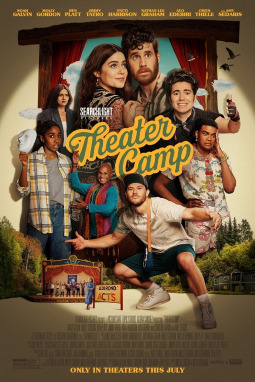
Theater Camp--Joan, the founder of "AndirondACTS," a slightly gone-to-seed theater camp in upstate New York, has fallen into a coma. The job of keeping the struggling camp afloat falls to her decidedly non-theatrical "crypto bro" son Troy. Meanwhile the devoted instructors work with the exuberantly happy campers to mount the shows, including an original musical about the life of poor comatose Joan (Amy Sedaris). Needless to say, all does not go smoothly.
The creators of this Waiting for Guffman-esque "mockumentary" comedy, Molly Gordon, Nick Lieberman, Ben Platt and Noah Galvin, know the world they're depicting well; all of them have been doing theater since they were small children. Gordon and Lieberman co-directed, from a script by all four; Platt and Gordon play Amos and Rebecca-Diane, the utterly enmeshed, co-dependent acting instructors and Galvin plays the low-profile tech director.
They capture the camaraderie and the sense of belonging that theater can give kids, and their affection for that world is unmistakable, but they're careful not to get too sentimental. The envies and resentments and passive-aggressive denigrations among theater folk, especially at this often professionally frustrated level, are vividly represented.
Getting laughs from the self-important vanities of theater people is pretty low-hanging fruit, I suppose, but Theater Camp is nonetheless often hilarious. The film also manages to get a little deeper at times, touching on the irony that while theater can create a haven and a community for misfit kids, this can generate its own clannishness and exclusionary snobbery, as in Amos and Rebecca-Diane's coldness toward the imbecilic but well-intentioned Troy, charmingly played by a sort of poor-man's Channing Tatum named Jimmy Tatro.
The real joy in Theater Camp, of course, is the acting: Platt, Gordon, Tatro, plus a few vets like Sedaris, Caroline Aaron and David Rasche bring the material to life. But as Glenn, the long-suffering backstage drudge who really ought to be onstage, Noah Galvin, who replaced Platt on Broadway in Dear Evan Hansen, is the revelation among the adults in the cast. He's a knockout.
The revelation among the kids playing the campers is, well, pretty much all of the kids playing the campers. There are some real singing, dancing and acting prodigies in this company. If there was a real theater camp somewhere with this kind of talent, their shows would sell out.
#oppenheimer#barbie#theater camp#greta gerwig#christopher nolan#margot robbie#cillian murphy#matt damon#florence pugh#emily blunt#ben platt#molly gordon#noah galvin#robert downey jr#ryan gosling#will ferrell#rami malek#kenneth branagh#tom conti#nick lieberman#jimmy tatro
12 notes
·
View notes
Text
Oppenheimer (2023)
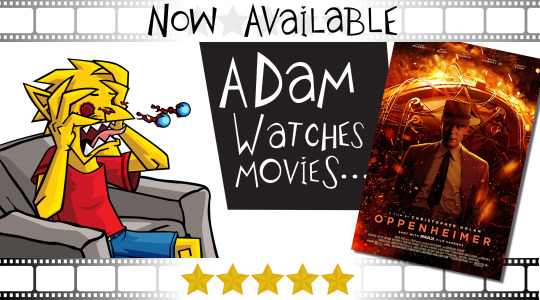
Visually striking, magnificently performed and expertly written, Oppenheimer is the kind of movie that doesn’t really contain any twists but makes you feel like you need to see it more than once. This is a movie that sticks with you.
In 1954, J. Robert Oppenheimer (Cillian Murphy) attends a private hearing before a Personnel Security Board to dispute his clearances. As the man who helmed the Manhattan Project, Oppenheimer feels personally responsible for the use of nuclear weapons. He seeks to limit their use and the development of future, more devastating weapons. As part of the hearing, Oppenheimer’s past is examined. Everything from his time studying experimental physics in Cambridge to his working relationships with famed physicists, his supposed communist ties and his many extra-marital affairs are laid bare.
The first thing to discuss is the picture’s running time. Oppenheimer clocks in at about 3 hours if you include the credits. That’s a lot but only in the sense that you probably shouldn't start watching it at 10:30 pm. In practice, it doesn’t feel long; not at all. In fact, the extended running time is one of the reasons why this film is so successful. There are A LOT of people to keep track of. We meet Albert Einstein, Niel Bohr and other physicists you haven’t heard of. More relevant to Oppenheimer's personal life is his second wife, “Kitty” (Emily Blunt), the woman he has an affair with, Jean Tatlock (Florence Pugh), his brother, Frank (Dylan Arnold), the director of the Manhattan Project, Gn. Leslie Groves (Matt Damon), and the man who recruits him, Lewis Strauss (Robert Downey Jr.). If this movie was cramming everything in 90 minutes, you’d struggle to remember who’s who, what are they doing and why.
Having that extra bit of time to process everything is a blessing. Those extra minutes also allow director Christopher Nolan (who co-wrote the screenplay with Emma Thomas and Charles Roven) to show us what makes Oppenheimer tick. There’s an immensity to the picture. We understand the destruction these weapons are capable of and the responsibility that accompanies them because we saw how big a project it was, how long it took and how worried the people were during their development. The secrecy, the uncertainty, how it consumed the lives of those involved. We understand the magnitude of what Oppenheimer and his team unleashed when no one else seems to.
One of my favorite things about biographical films is that they teach you about people. Specifically, they teach you to love some and hate others. Well, maybe that says more about me than about the movies. During Oppenheimer, you’ll develop a love-hate relationship with many people. On the one hand, Oppenheimer is so mature in his handling of the nuclear equation. In other aspects of his life, he’s so irresponsible he threatens to doom us all. Why can’t he stop cheating on his wife? Why can’t he understand that associating himself with communists puts him and his work at risk, regardless of how little he actually believes in the political system’s merit? The one you’ll develop the strongest feelings for is undoubtedly Lewis Strauss, but he’s in the movie a lot. You might excuse him as a… complicated person.
Pairing the pink-infused Barbie with Oppenheimer, preferably as a "Barbenheimer" double-feature (two 5-star movies in my book) is fun and begs an important question: which do you watch first? I saw both, back to back. The funny thing is that in some ways, they're not as different as they'd seem. Both, for instance, contain surreal fantasy sequences that allow us to peer into the protagonist's mind and ask big questions about where their titular characters belong in our world, how they affect(ed) it and what we, as audiences, can learn from that. The main difference is that Barbie is often funny and uplifting, while Oppenheimer is somber and heavy. That might make you lean towards the doll movie second, as a way to leave the theater feeling good, but honestly, you can't go wrong with the reverse order either. While Oppenheimer can feel overwhelming, teetering towards the depressing, it's also so well made, so powerfully acted and so grandiose of an experience that ultimately, it makes you feel good to have witnessed it. See them both. See them more than once - just don't start your marathon at 10:30 pm. (August 11, 2023)

#Oppenheimer#movies#films#movie reviews#film reviews#Christopher Nolan#Emma Thomas#Charles Roven#CIllian Murphy#Emily Blunt#Matt Damon#Robert Downey Jr.#Florence Pugh#Josh Hartnett#Casey Affleck#Rami Malek#Kenneth Branagh#2023 movies#2023 films
5 notes
·
View notes
Text
Film Review - Oppenheimer
Now we come to what I feel has been the cinematic centrepiece of 2023 films, and after so long on science-fiction franchises, it’s a real breath of fresh air in the realm of war-era biographical drama from what I’ve recently been looking through. Yes, folks, this is my review of Christopher Nolan’s Oppenheimer…
Plot (as adapted from Wikipedia):
In 1926, the 22-year-old doctoral student J. Robert Oppenheimer grapples with anxiety and homesickness while studying experimental quantum physics under Patrick Blackett at the University of Cambridge. Oppenheimer clashes with Blackett and leaves him a poisoned apple but later retrieves it. Visiting scientist Niels Bohr advises Oppenheimer to study theoretical physics at the University of Göttingen.
Oppenheimer completes his PhD and meets scientist Isidor Isaac Rabi. They later meet theoretical physicist Werner Heisenberg in Switzerland. Wanting to expand quantum physics research in the US, Oppenheimer teaches at the University of California, Berkeley and the California Institute of Technology. He marries Katherine "Kitty" Puening, a biologist and ex-communist, and has an intermittent affair with Jean Tatlock, a troubled communist psychiatrist who later dies by suicide.
When nuclear fission is discovered in 1938 after the Germans succeed in splitting the atom, Oppenheimer realizes it could be weaponized. In 1942, during World War II, US Army Colonel Leslie Groves, the director of the Manhattan Project, recruits Oppenheimer as the director of the Los Alamos Laboratory to develop an atomic bomb. Oppenheimer fears the German nuclear research program, led by Heisenberg, might yield a fission bomb for the Nazis.
Oppenheimer assembles a team consisting of Rabi, Hans Bethe, and Edward Teller, and collaborates with the scientists Enrico Fermi, Leo Szilard, and David L. Hill at the University of Chicago. Teller's calculations reveal an atomic detonation could destroy the world. After consulting with Albert Einstein, Oppenheimer concludes the chances are acceptably low. Teller attempts to leave the project after his proposal to construct a hydrogen bomb is rejected, but Oppenheimer convinces him to stay.
After Germany's surrender in 1945, some scientists question the bomb's relevance. Oppenheimer believes it would end the ongoing Pacific War and save Allied lives. The Trinity test is successful, and President Harry S. Truman orders the atomic bombings of Hiroshima and Nagasaki, resulting in Japan's surrender. Though publicly praised, Oppenheimer is guilt-ridden and haunted by the destruction and mass fatalities. After Oppenheimer expresses his guilt to Truman, the president berates him and dismisses his plea to cease further atomic development.
As an advisor to the United States Atomic Energy Commission (AEC), Oppenheimer's stance generates controversy, while Teller's hydrogen bomb receives renewed interest amidst the burgeoning Cold War. AEC Chairman Lewis Strauss resents Oppenheimer for publicly dismissing Strauss's concerns about exporting radioisotopes and for recommending negotiations with the Soviet Union after the Soviets successfully detonated their own bomb. Strauss also believes that Oppenheimer denigrated him during a conversation Oppenheimer had with Einstein in 1947.
In 1954, wanting to eliminate Oppenheimer's political influence, Strauss secretly orchestrates a private security hearing before a Personnel Security Board concerning Oppenheimer's Q clearance during which his loyalty to the United States is questioned. However, the hearing is a trial in all but name. Oppenheimer's past communist ties are exploited and his associates' testimony is twisted against him, with Teller's being the most damaging. After Kitty delivers impassioned testimony in defence of herself and her husband, the board no longer suspects Oppenheimer of disloyalty but revokes his clearance, thereby damaging his public image and limiting his influence on American nuclear policy.
In 1959, during Strauss's Senate confirmation hearing for Secretary of Commerce, Hill testifies about Strauss's personal motives for engineering Oppenheimer's downfall. Strauss's nomination is voted down. In 1963, President Lyndon B. Johnson presents Oppenheimer with the Enrico Fermi Award as a gesture of political rehabilitation.
A flashback reveals that Oppenheimer and Einstein's 1947 conversation never mentioned Strauss. Instead, the two discussed Oppenheimer’s legacy, and Oppenheimer expressed his fear that they had indeed started a chain reaction that will destroy the world.
Review:
What began for me as just something I was just kind of curious to see at the cinema has, in hindsight, probably turned out to be my top film of 2023. While efforts in the MCU, DC live-action and animation and the Transformers have wowed audiences with some element of spectacle or other, Oppenheimer wows us with acting ability and an all-star cast delivers on a great story. Of course, when a film is handling the kind of subject matter that Oppenheimer does, a great story narrative is crucial, and thankfully the film delivers. Now it isn’t a completely accurate story, but it is apparently very accurate, and where the inaccuracies occur, I would argue that these do not detract from the film we are presented with. Why? Well, let’s consider where the inaccuracies lie and we shall see.
Firstly, like any film, Oppenheimer is not a factual documentary, but a feature-length dramatic narrative, and moreover, it is based on a specific biography about Oppenheimer written by people other than Oppenheimer or any close family, friends or contemporaries. As such, the medium of this story and its source material will bring inaccuracy to the table even before any effort is made to actually write a story. Second, while some wider events are omitted, that is because they didn’t happen to Oppenheimer, so looking at the impact of nuclear weapons on Japan, other sites involved in the Manhattan project and the aftermath among Native Americans in the Los Alamos area isn’t relevant to this particular re-telling of this history. The film is about the title character, so its focus isn’t going to be on wider events.
As such, if people want to see wider events in film in the wake of Oppenheimer, if Nolan’s work is to spark a cinematic chain reaction as much as the real Oppenheimer’s work set off a chain reaction of nuclear proliferation, then I would say write those films and get them made. Don’t just criticise this film for not covering a wider perspective of things; if people really care about seeing more of World War 2 than just your bog-standard Pacific naval battle or soldiers and tanks rolling over Europe, then they need to put pen to paper, or fingers to keyboard. This is what I do to try and create fiction with autistic main characters like myself, and if I knew more about World War 2, I’d probably dive into that myself. We should see the other aspects of nuclear weapons being developed back in the 1940’s, as well as American internment camps for Japanese-Americans, a more nuanced and less America-centric look at the events preceding Pearl Harbour, and so on. However, it is not the place of this specific film to tell those stories, as Oppenheimer is as much a biographical film as it is a war film, so let’s let it be what it is and make other war films to tell the wider stories.
The only other inaccuracy, or supposed inaccuracy, relates to the poison apple scene from early in the film. This is apparently something Oppenheimer himself recounted, but it’s not anything that can apparently be substantiated. However, given that some later film scenes take us into the imaginings of certain characters, particularly Kitty Oppenheimer, and given that the supposed poisoning occurs when Oppenheimer was homesick and sleep-deprived, it could well be that what Oppenheimer believed to happen was simply his sleep-deprived mind confusing imagination with reality, and his recounting of the event later could simply indicate he never untangled the two. Regardless of whether this event is true or simply an error in the biography that the film replicates, it’s one of many examples that shows Oppenheimer to be a fundamentally complex, contradictory and fascinating human being.
The film handles its presentation of Oppenheimer’s life and work very well, in large part due to Cillian Murphy’s performance in the lead role, backed up by one of the most amazing all-star ensemble casts I’ve ever seen. Many of the cast are people I recognise from at least one past film or another that I’ve seen, and not one of them ever seems to put a foot wrong here. If I have any critique of the film, it’s only that some of the more badgering moments in Oppenheimer’s security clearance appeal hearings were not my personal cup of tea, which doesn’t detract in any way from the overall quality of the film, nor from its end score. 10 out of 10, hands down, and I would say that a lot of film makers need to watch this film before making anything more either in wholly original films or franchise instalments, because Oppenheimer really helps to showcase what other films are currently lacking.
2 notes
·
View notes
Text
DIA 18 DE OUTUBRO DE 2023: OPENHEIMER O FILME DE CRISTOPHER NOLAN SOBRE O “PAI” DA BOMBA ATÓMICA - IMPRESSIONANTE E ABSORVENTE DURANTE GRANDE PARTE DE 3 HORAS : enfrentei uma sala de cinema- pipocas “ para ver o “biopic” que desde Julho é grande sucesso de bilheteira a par de Barbie e que já ultrapassou o êxito da “Bohemian Rapsody” sobre a vida de Fred Mercury. Obviamente tal facto não é sinónimo de qualidade artística .
A 21 de julho, Oppenheimer, realizado e escrito por Christopher Nolan, foi lançado nos cinemas de todo o mundo. Adaptado da biografia de Kai Bird e Martin J. Sherwin, vencedora do prémio Pulitzer, “American Prometheus: The Triumph and Tragedy of J Robert Oppenheimer”, é a história do brilhante físico teórico americano que supervisionou o desenvolvimento da bomba atómica durante a Segunda Guerra Mundial O biopic traça as duas principais vertentes da vida de Oppenheimer: o trabalho científico que fez a sua carreira e as simpatias esquerdistas que, graças à cruzada anticomunista do pós-guerra, viriam a revelar-se a sua ruína. O filme de Nolan, impressiona e absorve durante grande parte das suas três horas de duração . Através de flashbacks ricamente coloridos, vemos as recordações de Oppenheimer sobre a sua carreira académica, a discutir teorias com o Albert Einstein de Tom Conti e o Niels Bohr de Kenneth Branagh; a sua complicada vida amorosa com a amante Jean Tatlock (Florence Pugh) e a mulher Kitty (Emily Blunt); e o tempo em que supervisionou o laboratório secreto de Los Alamos, no meio do deserto do Novo México, onde a bomba foi desenvolvida. Numa estrutura em mosaico são entrecortadas cenas a preto e branco, a maior parte das quais se refere às célebres audiências de 1954, instigadas pelo presidente da Comissão de Energia Atómica dos EUA, Lewis Strauss (Robert Downey Jr.), nas quais a vida e a reputação de Oppenheimer - em particular no que respeita às suas associações com o partido comunista - são postas em causa.Para além de uma sequência espantosa que retrata Trinity, o nome de código do primeiro teste de bomba nuclear no deserto de Jornada del Muerto, no Novo México, em 1945 (durante uns segundos terríveis, todo o ecrã fervilha com o fogo do inferno), Oppenheimer não é o que se pode chamar um filme "típico" de Nolan. Não há sequências de ação de ficção científica de alto conceito, nem cenas de guerra elaboradamente coreografadas (os efeitos das bombas lançadas sobre Nagasaki e Hiroshima são apenas sugeridosTalvez o momento mais importante do filme seja o lendário encontro do pós-guerra na Sala Oval da Casa Branca entre Oppenheimer e o Presidente Harry S. Truman (interpretado por Gary Oldman), o homem que tomou a decisão executiva final de lançar a bomba. Nolan e Murphy mostram como Oppenheimer se encolhe e no sofá como um garoto assustado, aparentemente querendo algo como a absolvição do presidente e murmurando que sente que tem "sangue nas mãos". Truman, furioso e perplexo, diz-lhe que tudo isso é da sua responsabilidade enquanto presidente e faz-lhe uma pergunta : será que Oppenheimer pensa que os japoneses se importam com quem fez a bomba?Um dos trunfos do filme é o papel do protagonista pelo actor Cillian Murphy: os planos rígidos do rosto; os seus olhos azuis metálicos de outro mundo, que transmitem um temor cósmico glacial ; e o seu desempenho, que é meticuloso, discreto e parece emanar do seu âmago.





0 notes
Text
watch and review Oppenheimer (film)

WATCH MOVIE
In 1926, 22-year-old doctoral student J. Robert Oppenheimer studies under experimental physicist Patrick Blackett at the Cavendish Laboratory in Cambridge. Oppenheimer suffers from homesickness and anxiety and struggles doing the required lab work. Oppenheimer, upset with the demanding Blackett, leaves him a poison-laced apple but retrieves it. Visiting scientist Niels Bohr is impressed enough by Oppenheimer's intellect to recommend that he should instead study theoretical physics in Germany, where Oppenheimer completes his PhD. He later meets theoretical physicist Werner Heisenberg at a conference in Switzerland.
Oppenheimer returns to the United States, wanting to expand quantum physics research there. He begins teaching at the University of California, Berkeley and the California Institute of Technology, starting with one student. He meets his future wife, Katherine "Kitty" Puening, a biologist and ex-communist, and also has an intermittent affair with Jean Tatlock, a member of the Communist Party USA, until her suicide a few years later. In 1938, Nazi Germany's progress in nuclear fission research spurs Oppenheimer and his colleagues to replicate their results. Leo Szilard and Albert Einstein then warn President Franklin D. Roosevelt of atomic weaponry's catastrophic potential.
In 1942, amid World War II, U.S. Army General Leslie Groves recruits Oppenheimer to lead the Manhattan Project to develop an atomic bomb after Oppenheimer's assurances he has no communist sympathies. Oppenheimer, who is Jewish, is particularly driven by the Nazis' potentially completing their nuclear weapons program, headed by Heisenberg. Oppenheimer assembles a scientific team including Edward Teller and Isidor Isaac Rabi in Los Alamos, New Mexico and also collaborates with scientists Enrico Fermi and David L. Hill; he and Einstein discuss how an atomic bomb potentially risks triggering an unstoppable chain reaction that could ignite the atmosphere and destroy the world.
After Germany surrenders, some project scientists question the bomb's relevance, while Oppenheimer believes using it will quickly end the ongoing war in the Pacific, saving Allied lives. The Trinity test is successful and President Harry S. Truman orders Hiroshima and Nagasaki to be bombed, forcing Japan's surrender. Oppenheimer is thrust into the public eye as the "father of the atomic bomb", but the immense destruction and mass fatalities haunt him. He urges Truman to restrict further nuclear weapon development. Truman rejects Oppenheimer's advice, considering him weak.
As an advisor to the U.S. Atomic Energy Commission, Oppenheimer advocates against further nuclear research, especially the hydrogen bomb proposed by Edward Teller. Oppenheimer's stance becomes a point of contention amid the tense Cold War with the Soviet Union. AEC Chairman Lewis Strauss deeply resents Oppenheimer after he publicly humiliated him by dismissing his concerns about exporting radioisotopes and also for Oppenheimer recommending arms talks with the Soviet Union.
At a hearing intended to eliminate his political influence, Oppenheimer is betrayed by Teller and other associates. Strauss exploits Oppenheimer's past associations with Communist party members. Despite allies testifying in his defense, Oppenheimer's security clearance is revoked, damaging his public image and neutralizing his policy influence. At Strauss's later Senate confirmation hearing for Secretary of Commerce, Hill testifies about Strauss's personal motives in engineering Oppenheimer's downfall. The U.S. Senate votes against Strauss's nomination. It is revealed that an earlier conversation between Einstein and Oppenheimer, in which Strauss believed Oppenheimer denigrated him, instead concerned nuclear weapons' possible cataclysmic consequences, with Oppenheimer believing they started a chain reaction that may destroy the world.
#OppenheimerFilm#OppenheimerMovie#RudolfOppenheimer#OppenheimerDocumentary#OppenheimerStory#OppenheimerTheFilm#OppenheimerBiopic#OppenheimerFilm2020#OppenheimerTrueStory#OppenheimerMovieNight
0 notes
Text
Sledujte ― Oppenheimer Film Online CZ A Zdarma
Sledujte Oppenheimer Filmy Online CZ (2023) Stáhnout Celý Film Online Zdarma Titulky, Cz Dabing v HD.
Oppenheimer online cz zdarma? Zjistěte, kde můžete sledovat obsah online z nabídky 7 služeb.
Kde Sledovat Oppenheimer Filmy Online Zdarma:
► Klikněte zde pro shlédnutí filmu Oppenheimer - Online zdarma v HD
Kde sledovat Oppenheimera?
několik způsobů, jak sledovat film Oppenheimer online v USA Můžete použít streamovací službu, jako je Netflix, Hulu nebo Amazon Prime Video. Film si také můžete vypůjčit nebo zakoupit na iTunes nebo Google Play. sledujte jej na vyžádání nebo ve streamovací aplikaci dostupné na vašem televizoru nebo streamovacím zařízení, pokud máte kabel.
Co je to film Oppenheimer?
Oppenheimer je připravovaný americký životopisný thriller, který napsal, produkoval a režíroval Christopher Nolan podle životopisné knihy American Prometheus z roku 2005 od Kaie Birda a Martina J. Sherwina o Robertu Oppenheimerovi, jaderném fyzikovi, který se podílel na vývoji prvních jaderných zbraní v rámci projektu Manhattan. V primární roli se představí Cillian Murphy, spolu s Emily Bluntovou, Matt Damonem, Robert Downey Jr., Florence Pughovou, Josh Hartnettem, Casey Affleckem, Rami Malekem a Kenneth Branaghem v hlavních rolích.
Film byl oznámen v září 2021, kdy společnost Universal Pictures vyhrála výběrové řízení. Natáčení začalo koncem února 2022 a skončilo v květnu téhož roku. Film byl natáčen v kombinaci IMAX 65mm a 65mm velkoformátového filmu – včetně úseků natočených v témže formátu IMAX černobíle. Stejně jako ve svých předchozích filmech použil Nolan rozsáhlé praktické efekty a minimum CGI.
Kdy vyjde film Oppenheimer?
Hlavní role
Cillian Murphy jako Robert Oppenheimer[1]
Emily Bluntová jako Katherine „Kitty“ Oppenheimerová[2]
Matt Damon jako Leslie Groves[3]
Robert Downey Jr. jako Lewis Strauss[3]
Florence Pughová jako Jean Tatlock[4]
Josh Hartnett jako Ernest Lawrence[5]
Casey Affleck jako Boris Pash[6]
Rami Malek jako David Hill[4]
Kenneth Branagh jako Niels Bohr[7]
Vedlejší role
Benny Safdie jako Edward Teller
Dylan Arnold jako Frank Oppenheimer
Gustaf Skarsgård jako Hans Bethe
David Krumholtz jako Isidor Isaac Rabi
Matthew Modine jako Vannevar Bush
David Dastmalchian jako William L. Borden
Tom Conti jako Albert Einstein
Michael Angarano jako Robert Serber
Jack Quaid jako Richard Feynman
Josh Peck jako Kenneth Bainbridge
Olivia Thirlbyová jako Lilli Hornigová
Dane DeHaan jako Kenneth Nichols
Danny Deferrari jako Enrico Fermi
Alden Ehrenreich jako a Senate aide
Jefferson Hall jako Haakon Chevalier
Jason Clarke jako Roger Robb
James D'Arcy jako Patrick Blackett
Tony Goldwyn jako Gordon Gray
Devon Bostick jako Seth Neddermeyer
Alex Wolff jako Luis Walter Alvarez
Scott Grimes jako Counsel
Josh Zuckerman jako Giovanni Rossi Lomanitz
Matthias Schweighöfer jako Werner Heisenberg
Christopher Denham jako Klaus Fuchs
David Rysdahl jako Donald Hornig
Guy Burnet jako George Eltenton
Louise Lombard jako Ruth Tolman
Harrison Gilbertson jako Philip Morrison
Emma Dumont jako Jackie Oppenheimer
Trond Fausa Aurvåg jako George Kistiakowsky
Olli Haaskivi jako Edward Condon
Gary Oldman jako Harry S. Truman
Kdo je obsazením filmu Oppenheimer?
Premiéra filmu Oppenheimer se uskutečnila 11. července 2023 v pařížském Le Grand Rex a jeho uvedení do kin ve Velké Británii a Spojených státech je naplánováno na 21. července 2023, v Česku již o den dříve, 20. července.
Kompletní údaje o filmu Oppenheimer
Oppenheimer
Drama / Historický / Životopisný
USA / Velká Británie, 2023, 180 min
Režie: Christopher Nolan
Předloha: Kai Bird (kniha), Martin Sherwin (kniha)
Scénář: Christopher Nolan
Kamera: Hoyte van Hoytema
Hudba: Ludwig Göransson
Hrají: Cillian Murphy, Emily Blunt, Matt Damon, Robert Downey Jr., Florence Pugh, Josh Hartnett, Casey Affleck, Rami Malek, Kenneth Branagh
Oppenheimer na Disney Plus?
Na Disney+ nejsou žádné stopy po Oppenheimer Trail, důkaz, že House of Mouse nemá žádnou kontrolu nad celou franšízou! Disney+, domov pro tituly jako 'Star Wars', 'Marvel', 'Pixar', National GOppenheimer graphic', ESPN, STAR a další, je k dispozici za roční předplatné 79,99 $ nebo měsíční poplatek 0,99 $. Pokud jste jen fanouškem některé z těchto značek, stojí za to se přihlásit do Disney+ a nemá ani reklamy.
Oppenheimer na HBO Max?
Je nám líto, ale Oppenheimer Way není na HBO Max k dispozici. Je tu spousta obsahu HBO Max za 14,99 $ měsíčně, toto předplatné je bez reklam a umožňuje vám přístup ke každému titulu v knihovně HBO Max. Streamovací platforma oznámila verzi podporovanou reklamou, která stojí mnohem méně za 9,99 $ měsíčně.
Oppenheimer na Amazon VidOppenheimer?
Bohužel, Oppenheimer Path by Water není k dispozici ke streamování zdarma na Amazon Prime VidOppenheimer. Můžete si však vybrat i jiné pořady a filmy, které budete odtud sledovat, protože má širokou škálu pořadů a filmů, ze kterých si můžete vybrat za 14,99 $ měsíčně.
Oppenheimer na Peacockovi?
Oppenheimer Way nelze na Peacock v době psaní tohoto článku sledovat. Peacock nabízí předplatné, které stojí 4,99 $ měsíčně nebo 49,99 $ ročně u prémiového účtu. Stejně jako její jmenovec si streamovací platforma může hrát s venkovním obsahem zdarma, i když omezeně.
Oppenheimer na Paramount Plus?
Oppenheimer The Road to Water není na Paramount Plus. Paramount Plus nabízí správnou možnost předplatného: základní verze služby Paramount + Essential podporuje reklamu za 4,99 $ měsíčně a prémiový plán bez reklam za 9,99 $ měsíčně.
Kde mohu sledovat film Oppenheimer zdarma?
Cinemov je webová stránka, která nabízí zdarma více než 20 000 streamovaných filmů všech žánrů zdarma. Když se přihlásíte, najdete neomezené množství HD filmů, obrovský katalog k procházení a vyhledávací panel, který vám umožní vyhledat všechny filmy, které chcete vidět.
Zajímá vás, jak legálně sledovat bezplatný streaming filmu Oppenheimer? Pokud ano, budete rádi, že je to skutečně možné, protože v současnosti existuje v Itálii několik webových stránek, kde můžete zdarma sledovat filmy všech žánrů a dob. V některých případech se možná budete muset zaregistrovat prostřednictvím e-mailu nebo použít svůj online účet k přihlášení.
Řeknu vám podrobně, jak můžete pomocí nejpopulárnějších internetových stránek, online služeb a aplikací pro chytré telefony/tablety streamovat filmy zdarma. Cinemov je jedna z nejlepších stránek. Nabídka filmů sahá od nejnovějších filmů po klasiky z historie kinematografie, od amerických filmů po italské filmy, od hororů po komedie… zkrátka svoboda výběru, počet filmů je působivý. Samozřejmě to nenajdete, když půjdete do kina.
1 note
·
View note
Text
so i read “we’ll meet again on coronation street” by maggie sullivan - here are my thoughts on it!


in my opinion this book did what it set out to do, which was to provide a lighthearted, sentimental tale, reimagining the residents of coronation street just after the second world war. it was a nice historical insight into the post war era and also introduced new characters to the street which was fun.
wendy was likeable, and it was good to see the street from the perspective of a newcomer. i enjoyed seeing her confidence grow as the book went on. i was definitely rooting for her and hoping she and richard (another new character) ended up together. denise can fight me she had no business being that annoying. she was one of wendy’s colleagues who frequently undermined her and competed for richard’s affections and was wonderfully, comically antagonistic, although i did feel a bit sorry for her in the end.
i think it provided an interesting contemporary perspective on some of the original characters too.
for example, frank barlow’s patriarchal and controlling behaviour was called out and the story really made me as the reader sympathise with ida on a deeper level. my heart really broke for ida at times but her arc had a satisfying ending and it was done very nicely. i think the story really empowered her as a character and i’ll definitely view her scenes in the show with a new found appreciation after that. a very young ken also causes a bit of mischief in this which is amusing.
i found elsie’s portrayal interesting, she’s certainly one of my favourite characters and its clear the writer is very fond of her as well. she definitely captured her bold, lively spirit and heart of gold. i also liked the feminist interpretation of her character, even if some of the dialogue felt a bit repetitive at times. the unreliable love interest getting drunk and embarrassing her was certainly...a choice (although taken at face value george’s antics staggering about blackpool did provide some comic relief)
it was also nice to see albert tatlock have some happier moments in his younger years and the role bessie had in his life and the community back then.
overall an enjoyable read, the plot was a bit on the weaker side but i loved the way the characters were written, it definitely gave me a warm feeling inside. like if you want to read about women’s darts tournaments, a wholesome trip to blackpool and women supporting women, all set in the 1940s then definitely give this a try.
#coronation street#we’ll meet again on coronation street#reading material#elsie tanner#ida barlow#frank barlow#ken barlow#albert tatlock#1940s#post ww2
2 notes
·
View notes
Text

random 60s coronation street characters I felt like drawing xoxo
#ooooooh new hyperfixation oh my godddd#elsie tanner#emily nugent#lucille hewitt#albert tatlock#dennis tanner#jack walker#coronation street#my art#fighting for my life trying not to say any self deprecating comments rn#*gently places this on the ground without a word then evaporates into thin air*#just don't look at them too closely 🥲#doodle
6 notes
·
View notes
Text
"What is he fucking doing here?" Liam demanded. And then he was up and away, making his way towards the father he hadn't seen in years.
Terry gave chase and just as Liam got to his dad's table, he swiftly blocked him off.
"You fucking cunt, I'll break your legs," Liam shouted trying to get round Terry.
"You couldn't break Albert Tatlocks legs," Thomas sneered.
Liam went to punch him but every time he moved, Terry expertly moved with him. Liam threw his arms up in disgust and walked away, back to his seat. He looked hurt, devastated.
Suddenly, Noel entered the room, walked past his father and went straight to Liam.
"Liam, come with me."
"No, I won't."
"Liam! You come with me right now." Noel was in no mood to argue, his voice made that patently clear.
Liam stood up and Noel took him by the arm and guided him to the far side of the room. They disappeared behind some curtain.
Liam's Confrontation With His Father and the Aftermath, The Adventures of Oasis
116 notes
·
View notes
Text
'Paycheck is not always on the priority list for many A-listers, as for several actors, the chance of working with their favorite filmmaker often prevails over their desire of wanting a hefty amount. The same can be said for several A-listers, including Cillian Murphy and Robert Downey Jr, who agreed to work alongside Nolan, even though many of them had substantially lesser screen time.
But this didn’t stop them from bringing their absolute A-game moving into the 3-hour long period drama, including the lead actor, Cillian Murphy, who went under extreme transformation for the role.
9 Prominent Stars Who Brought Their A-Game in Christopher Nolan’s Oppenheimer
Cillian Murphy:
Being at the forefront of the 3-hour-long biopic, Cillian Murphy arguably delivers one of his best performances to date on the big screen, bringing Nolan’s vision to life. But one of the more impressive feats was the transformation he had undergone for the role, losing a substantial amount of weight in order to replicate J. Robert Oppenheimer’s physique. Although the exact number isn’t known, according to his costars, Cillian Murphy refused dinner invitations every night during the entire production, following his commitment to the job.
Robert Downey Jr:
Witnessing Robert Downey Jr. as something different other than Tony Stark was a breath of fresh air for the fans, and like Cillian Murphy, the Iron Man Star doesn’t pull punches and delivers his absolute best. Playing the role of Lewis Strauss in the film, the actor has delivered one of his best performances since playing Kirk Lazarus in Tropic Thunder. And fans are assured like his role in Tropic Thunder, his work in Oppenheimer too might land him an Oscar nomination for Best Supporting Actor.
Matt Damon:
Although reports claimed Damon was reportedly taking a break from acting after Air as a negotiation with his wife during a couples therapy session, the chance of working with Nolan was too much to resist. Playing the Manhattan Project director, General Leslie Groves, the actor too doesn’t disappoint in bringing his charm to the character, and his chemistry with Cillian Murphy’s Oppenheimer was enticing to watch.
Florence Pugh:
As her first partnership with Christopher Nolan, Florence Pugh plays the role of Jean Tatlock in the movie, who is essential to the emotional core of the film. And like her co-stars, Pugh does an exceptional job with the material she is given, making every single scene she is involved in memorable.
Emily Blunt:
it didn’t take a lot of convincing on Christopher Nolan’s part to bring Emily Blunt on board, as reports claimed, after meeting the director in Los Angeles, she instantly accepted the role. In the movie, Blunt plays the role of Katherine Puening, who ties the knot with Oppenheimer, and she also delivers one of the most impactful scenes in the movie.
Tom Conti:
Throughout his brief scenes portraying the theoretical physicist Albert Einstein, Tom Conti partakes in some of the most gut-wrenching scenes in the movie. And the ending scene, involving the duo of him and Cillian Murphy’s Oppenheimer, it’s not a hot take to say that it will go down as one of the most iconic endings to a Christopher Nolan movie.
Rami Malek:
Following the long list of celebrity brief appearances in the movie, unlike many big-budget Hollywood flicks, every brief moment from these actors have a purpose, including Rami Malek’s David Hill. Although in total, the actor appears for less than 10 minutes in the movie, it doesn’t stop him from delivering his best, as his final scene ultimately decides Lewis Strauss’ fate.
Benny Safdie:
After doing a reference check with director Paul Thomas Anderson, Christopher Nolan picked Benny Safdie to play the father of the hydrogen bomb, Edward Teller. But besides doing a great job bringing the controversial figure to life, the actor was also asked by Nolan to not pluck his eyebrows for months for the movie. “I am proud to say that it’s all my eyebrows,” Safdie stated.
Kenneth Branagh:
It appears Kenneth Branagh is becoming the next constant in Christopher Nolan-led projects, as Oppenheimer marked the third collaboration between the two. Despite having a substantially lesser presence in the film, the actor shines as Niels Bohr in the movie.
Apart from these prominent stars, there are a plethora of other A-listers from the heavily star-studded cast, who doesn’t disappoint. But apart from everyone’s brilliance, Nolan deserves the utmost praise for his direction, as he succeeded in bringing the Cillian Murphy-led 3-hour period drama into the mainstream spotlight, which might not have been possible by any other filmmaker.'
#Kenneth Branagh#Rami Malek#Benny Safdie#Niels Bohr#Edward Teller#David Hill#Florence Pugh#Jean Tatlock#Emily Blunt#Kitty#Matt Damon#Leslie Groves#Robert Downey Jr.#Lewis Strauss#Cillian Murphy#Oppenheimer#Christopher Nolan#Tom Conti#Albert Einstein#Tropic Thunder#Iron Man#Oscars
4 notes
·
View notes
Video
youtube
Liked on YouTube: THE SKIDS TV STARS ALBERT TATLOCK DUNFERMLINE ALHAMBRA 6TH MARCH 2010.AVI https://youtu.be/Y_b0Tf_AEuA
1 note
·
View note
